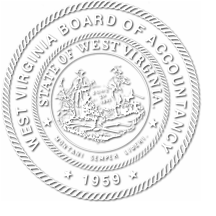Cheating by an applicant in applying for or taking the examination shall be considered to invalidate any grade otherwise earned by a candidate on any part of the examination, and may warrant summary expulsion from the examination room and disqualification from taking the examination for a specified number of subsequent sittings.
For purposes of this Rule, the following actions, among others, may be considered cheating:
- Falsifying or misrepresenting educational credentials or other information required for admission to the examination;
- Communication between candidates inside or outside the examination room or copying another candidate's answers while the examination is in progress;
- Communication with others outside the examination room while the examination is in progress;
- Substitution of another person to sit in the examination room in the stead of a candidate;
- Reference to crib sheets, text books or other material inside or outside the examination room while the examination is in progress;
- Violating the nondisclosure prohibitions of the examination or aiding or abetting another person in doing so; or
- Retaking or attempting to retake a test section by an individual holding a valid certificate or by a candidate who has unexpired credit for having already passed the same test section, unless the individual has been directed to retake a test section pursuant to Board order or unless the individual has been expressly authorized by the Board to participate in a "secret shopper" program.
In any case where it appears that cheating has occurred or is occurring while the examination is in progress, the Board or its representatives may either summarily expel the candidate involved from the examination or move the candidate to a position in the test center away from other examinees where the candidate can be watched more closely.
In any case where the Board believes that it has evidence that a candidate has cheated on the examination, including those cases where the candidate has been expelled from the examination, the Board shall conduct an investigation and may conduct a hearing consistent with the requirements of 1 C. S. R. 2, Contested Case Hearing Procedure, for the purpose of determining whether or not there was cheating, and if so what remedy should be applied.
After a hearing in any case where a candidate is refused credit for parts of the examination taken, or is disqualified from taking other parts, the Board shall give the candidate a statement containing its findings, the evidence upon which the findings are based, and a notice of the right of the candidate to a formal rehearing by the Board, with right of appeal, pursuant to West Virginia Board of Accountancy Rule, 1 C.S.R. 2, Contested Case Hearing Procedure. The Board will also provide to the board of accountancy of any other state to which the candidate may apply for the examination, a copy of the final order containing findings of fact and conclusions of law.
Security and Irregularities. Notwithstanding any other provisions under these Rules, the Board may postpone scheduled examinations, the release of grades, or the issuance of certificates due to a breach of examination security; unauthorized acquisition or disclosure of the contents of an examination; suspected or actual negligence, errors, omissions, or irregularities in conducting an examination; or for any other reasonable cause or unforeseen circumstance.

